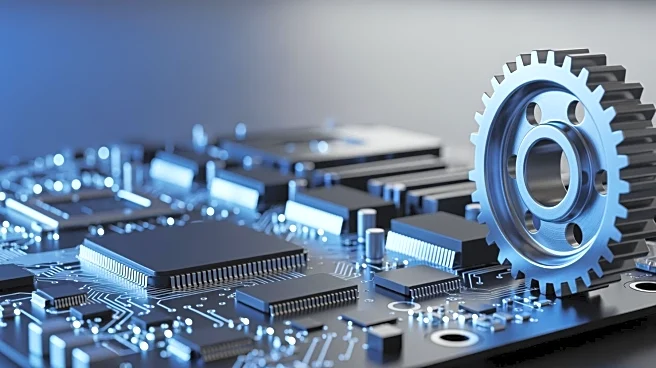What's Happening?
Morgan Stanley has issued a double-downgrade for Dell Technologies' stock, shifting its rating from a Buy-equivalent overweight to a Sell-equivalent underweight. This decision comes ahead of Dell's upcoming earnings report on November 24. The downgrade is primarily
attributed to the rising costs of memory drives, which are crucial components in Dell's PCs and AI servers. Morgan Stanley has also reduced its price target for Dell stock from $144 to $110. The investment bank highlighted that the prices for NAND flash drives and dynamic random-access memory products have surged by up to 50% and 300%, respectively, over the past six months, largely due to tariffs affecting the computer hardware market. Despite this downgrade, JPMorgan Chase has maintained a positive outlook on Dell, citing strong demand for its AI servers and raising its price target from $165 to $170.
Why It's Important?
The downgrade by Morgan Stanley reflects significant concerns about Dell's ability to maintain profit margins in the face of rising component costs. This development could impact investor confidence and influence Dell's stock performance in the near term. The contrasting views from Morgan Stanley and JPMorgan Chase highlight the uncertainty in the market regarding Dell's future profitability and growth potential. For Dell, the rising costs of key components could lead to increased product prices, potentially affecting consumer demand and market competitiveness. The situation underscores the broader challenges faced by hardware manufacturers in managing supply chain costs and navigating tariff impacts.
What's Next?
As Dell approaches its earnings report, investors and analysts will be closely monitoring the company's financial performance and any strategic responses to mitigate rising costs. Dell's management may need to address these challenges by exploring cost-cutting measures or adjusting pricing strategies. The market will also be watching for any further analyst updates or changes in stock ratings that could influence investor sentiment. Additionally, Dell's ability to capitalize on the growing demand for AI servers will be crucial in offsetting the negative impact of increased component costs.

















